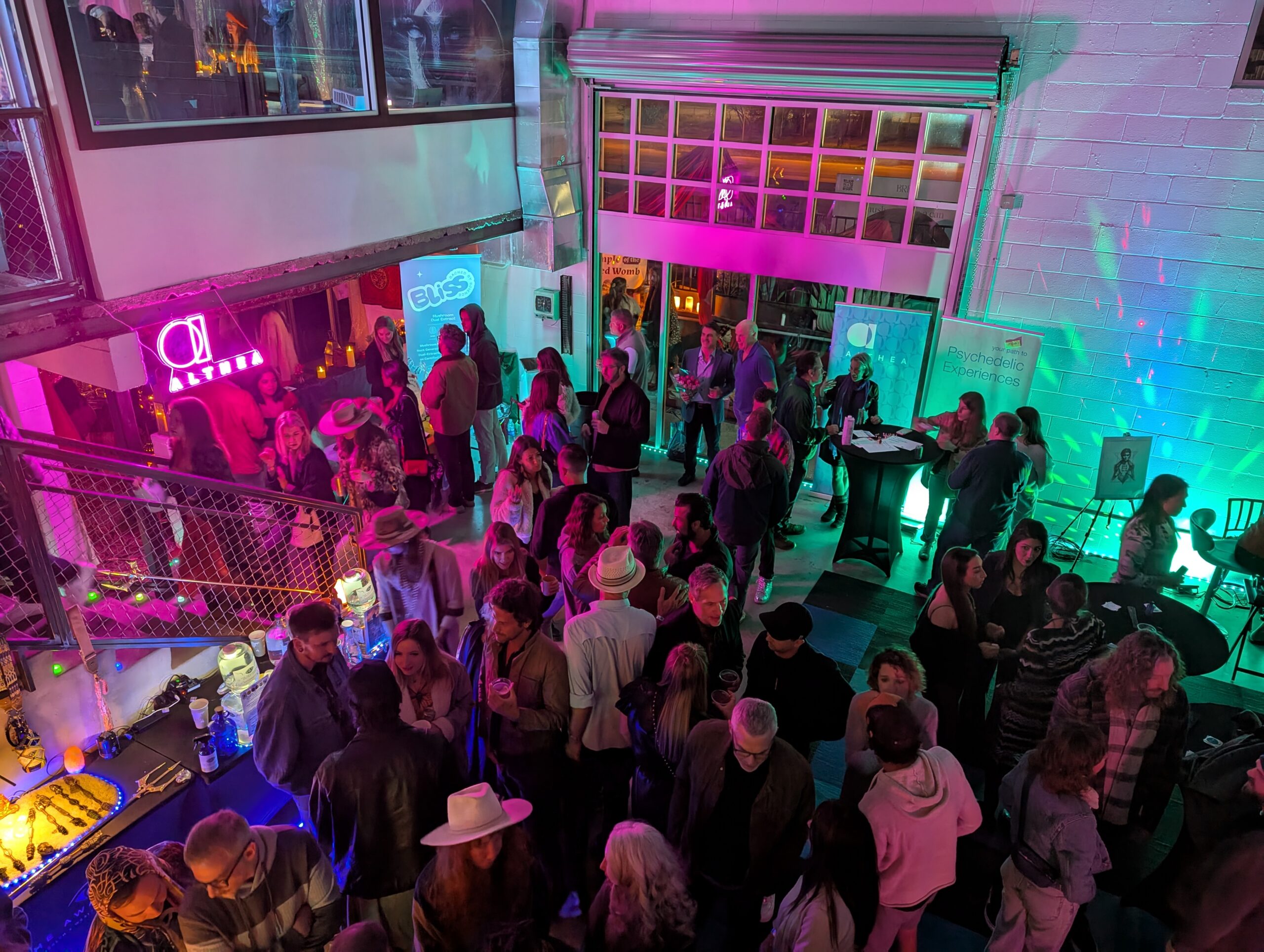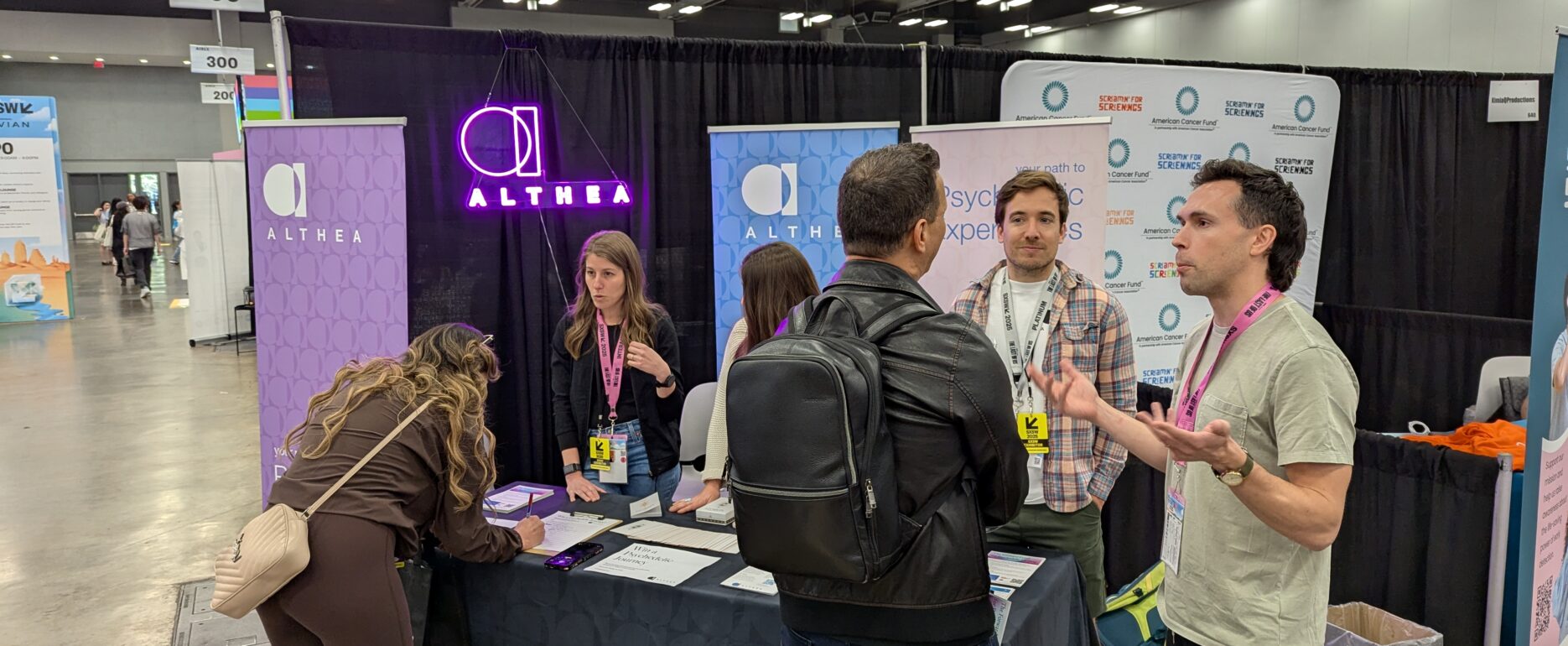
He said he could feel it coming on. There was pressure building like a needle was beginning to lightly press the side of his head. That’s when he knew; he knew the cluster headache was coming on. What would proceed is a headache so intense it has caused people who suffer from them to contemplate and commit suicide. He knew in a matter of time that needle would be piercing all the way through his head, where it would scratch the back of his eye. It was an excruciating pain that would sometimes last for three hours and sometimes occur twice a day.
Nothing the doctors did would help. At one point, he tried psilocybin and was amazed to find that he could stop the cluster headaches before they intensified. Now, if he feels that needle pressing on the side of his head, he microdoses psilocybin, and the pain recedes. Not every time, but most of the time. For him, this has been a life-changer.
Psilocybin, the active compound in magic mushrooms, has shown promising potential for treating cluster headaches, especially for people who don’t respond to traditional medications. While research is still emerging, many people have reported that psilocybin can break or shorten the headache cycle after one or two doses. Some users say occasional doses — even non-hallucinogenic “microdoses” — help prevent future cycles. Additionally, some find that it reduces the intensity or duration of an ongoing headache.
She had suffered trauma as a child that she had buried and forgotten. She was down on her luck and desperate for answers, but had none. Then, as an adolescent, she took psilocybin. Though she didn’t integrate it for years, when she did, she’d realized it had changed her life. She wanted to share this with others. She didn’t want anyone else to have to go years without experiencing the healing she had.
Psilocybin has been shown to help those suffering from trauma by processing and reframing traumatic memories without the usual overwhelming emotional response. This is partly due to its effects on serotonin receptors, particularly 5-HT2A, which play a role in mood regulation and emotional processing. It also promotes neuroplasticity—the brain’s ability to reorganize itself by forming new neural connections. Many users report a sense of “ego dissolution” during psilocybin experiences, leading to a diminished sense of self. This can facilitate a new perspective on traumatic events, aiding in emotional healing. Psilocybin has been found to enhance feelings of connectedness, empathy, and self-compassion, which are often diminished in individuals with trauma-related disorders.

The Importance of Integration
Integration is a key part of the process of making sense of and applying insights from a psychedelic experience to daily life. It happens after the trip and involves reflecting on the emotions, visions, and thoughts that emerged — turning those experiences into actionable lessons. In the therapeutic setting, integration often involves working with a therapist or guide to unpack the experience, but it can also be done through journaling, meditation, support groups, or personal reflection. If someone skips the integration phase, they might miss out on lasting benefits, get stuck in loops, and feel more isolated.
She’d had autism forever that held her back socially. She struggled to interact and empathize with others. Then she took psilocybin. A part of her brain that hasn’t had a voice spoke up for the first time and said, “I’m the part of your brain that doesn’t usually get a voice.” It then integrated with the rest of her brain. Her symptoms subsided tremendously. It changed her life forever.
Some anecdotal reports and preliminary studies suggest that psilocybin may help improve social functioning and reduce anxiety in individuals with autism spectrum disorder (ASD). However, comprehensive clinical trials are necessary to substantiate these claims.
This is a small sample of stories I heard at our booth at SxSW this year. We were swarmed by passionate people day after day who were compelled to come and share their stories. Of course there were plenty who were curious and inquisitive and who didn’t have a relationship with psychedelics, but there were so many with amazing success stories like these that needed to share their journey and how psilocybin had changed their life for the better.
As with anything, using psilocybin should be handled carefully. We recommend using a facilitator, or guide, to amplify benefits and mitigate risks. Psilocybin can amplify emotions — which means, if someone isn’t properly supported, it could intensify traumatic memories or trigger a bad trip. Also, people with schizophrenia, bipolar disorder, or a family history of psychosis should approach with caution, as psilocybin can potentially trigger psychotic episodes.
I nearly came to tears with the many stories I heard of suffering and miracle improvement from manic mushrooms. As a naturally skeptical individual, I honestly couldn’t believe the variety of successes people had with one medicine. To hear these passionate individuals speak about their transformations was incredible. It only made me believe more in the power of this medicine. It’s not a cure-all; nothing is. But it’s an opportunity — a neuro-regenerative resource that has helped many people in many different ways. From autism to ADHD to traumatic brain injuries to depression to PTSD to problem solving and creativity to addiction, people have found this medicine. We think it’s time that anyone who wants to use it, is able to. It’s legal to do that in Oregon and Colorado.



